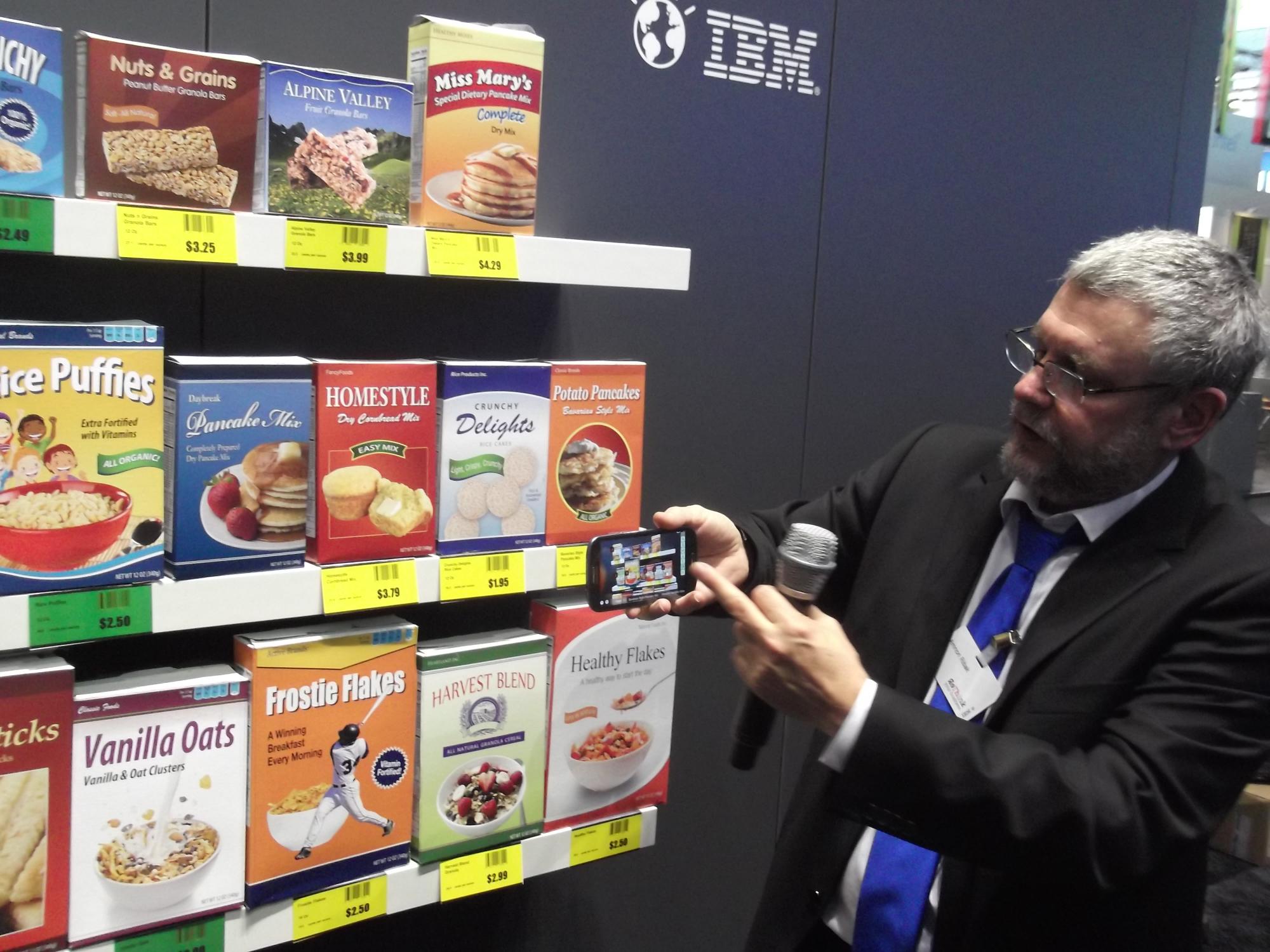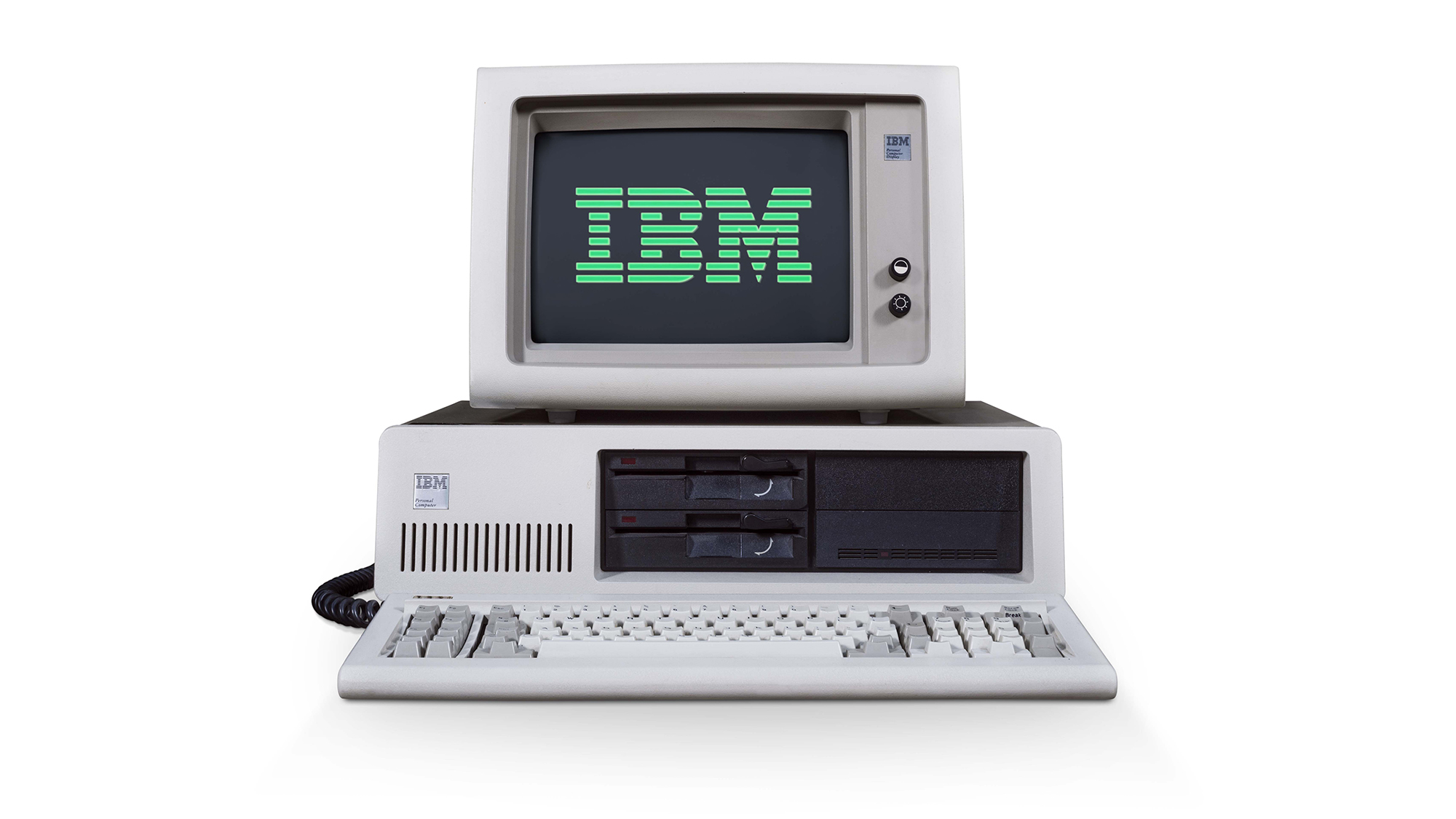IBM showcases augmented reality shopping app
IBM demonstrates new Augmented Shopping Assistant App, which will arm consumers with information about all their in-store purchases.

The UK is to be the testbed for a new augmented reality (AR) app that recognises goods in a supermarket simply by their packaging.
Developed in IBM Research's lab in Haifa, Israel, the Augmented Shopping Assistant uses an Android smartphone's camera plus advanced image recognition technology.
Once all the products on a shelf or rack have been recognised, the app retrieves information on them and augments the on-screen picture as requested by the shopper.
For example, it could add numbers to rank them by calorie content or price, pick out the ones that are gluten or lactose-free, or indicate which are on sale or covered by discount coupons. The shopper can also freeze the image and tap it to pull up full details on a product.
The Augmented Shopping Assistant aims to bridge the huge gap that exists today between the average shopper in the store and the wealth of product information available online, said IBM Research project manager, Amnon Ribak.
He stressed that it is all done without scanning barcodes or needing to touch or move the products. "The biggest challenge here is the image recognition it's not fancy AR," he said.
Ribak added that IBM will sell the technology to retailers; they can then offer it to shoppers for download as part of their customer loyalty programme.
Get the ITPro daily newsletter
Sign up today and you will receive a free copy of our Future Focus 2025 report - the leading guidance on AI, cybersecurity and other IT challenges as per 700+ senior executives
He said that the app's first customer is a UK retailer, but stopped short of revealing which one.
Retailers could add other elements to the app, he suggested, such as cross-selling of related products, directions around the store, personalised recommendations or discounts, and links to social networks so people can read and leave comments on products.
-
 Bigger salaries, more burnout: Is the CISO role in crisis?
Bigger salaries, more burnout: Is the CISO role in crisis?In-depth CISOs are more stressed than ever before – but why is this and what can be done?
By Kate O'Flaherty Published
-
 Cheap cyber crime kits can be bought on the dark web for less than $25
Cheap cyber crime kits can be bought on the dark web for less than $25News Research from NordVPN shows phishing kits are now widely available on the dark web and via messaging apps like Telegram, and are often selling for less than $25.
By Emma Woollacott Published
-
 Want a return on your AI investment? Open source could be the key to success
Want a return on your AI investment? Open source could be the key to successNews Organizations using open source AI tools are more likely to report a return on investment
By Nicole Kobie Published
-
 IBM just open sourced these generative AI coding models
IBM just open sourced these generative AI coding modelsNews IBM has open sourced models trained on code written in 116 programming languages - and it could make life a lot easier for enterprise developers
By Steve Ranger Published
-
 Application performance management for microservice applications on Kubernetes
Application performance management for microservice applications on Kuberneteswhitepaper How to improve business-critical app performance in a Kubernetes environment
By ITPro Published
-
 Can Oracle really be Linux's knight in shining armor?
Can Oracle really be Linux's knight in shining armor?Opinion The self-proclaimed champion of open source freedom would like you to forget about its history
By Richard Speed Published
-
 Achieving software health in the microservices age
Achieving software health in the microservices ageWhitepaper Tips and tricks for the new and emerging remediation methods
By ITPro Published
-
 The true story behind the IBM Personal Computer
The true story behind the IBM Personal ComputerIn-depth The industry-creating IBM Personal Computer 5150 turned 40 this year. To mark the occasion, we reveal the story of its birth – and destroy one long-running myth in the process
By Tim Danton Published
-
 Xinuos sues IBM for patent infringement
Xinuos sues IBM for patent infringementNews Lawsuit revisits ancient legal war over Unix code
By Danny Bradbury Published
-
 Log-On Wave for IBM Z simplifies highly virtualized environments
Log-On Wave for IBM Z simplifies highly virtualized environmentsNews The service improves productivity and flattens the learning curve for less-experienced admins
By Praharsha Anand Published